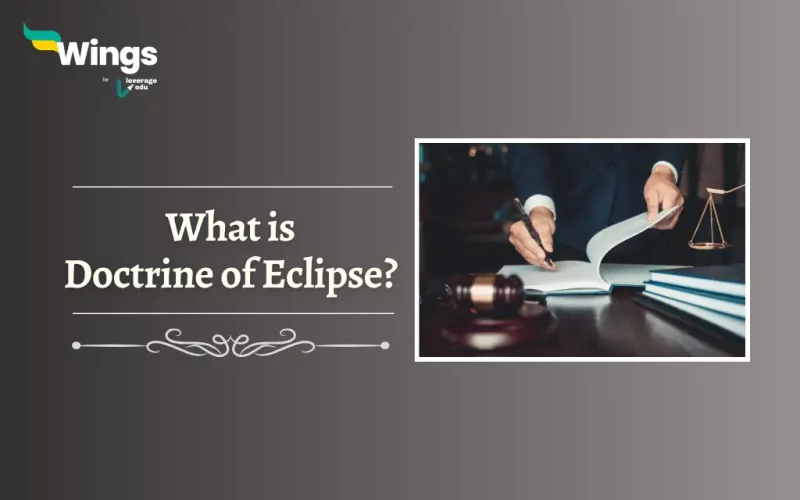The Doctrine of Eclipse, based on Article 13(1) states that any pre-existing laws (before the adoption of the Indian Constitution), if inconsistent with the Fundamental Rights become void to the extent of the inconsistency. Moreover, the Fundamental Rights are described as an “eclipse” that overshadows the law. Thus, this Doctrine guarantees that pre-existing laws do not hinder the Fundamental Rights guaranteed by the Constitution. However, it does not leave the eclipsed law completely invalid. It simply keeps the law dormant until the inconsistency is addressed. Read on to learn about the Doctrine of Eclipse in the Indian Constitution, the Examples as well as in which cases the Doctrine of Eclipse has been put to use!
What are the Features of the Doctrine?
Moreover, here are the Features of the Doctrine of Eclipse:
Scope of Application
- Pre-Constitution Laws: The Doctrine of Eclipse applies to laws existing before the Indian Constitution came into effect on the 26th of January 1950.
- Post-Constitution Laws: This doctrine does not extend to laws enacted after the Constitution’s adoption. These laws, if found violating Fundamental rights, are considered invalid from the outset and cannot be revived by amendments.
Impact on Conflicting Laws
- Shadowed but not Eradicated: When a pre-existing law clashes with a Fundamental right, the Doctrine suspends the law’s operation, hence rendering it unenforceable. The law itself remains on the books but becomes dormant.
- Revitalization through Amendments: If a future amendment alters the relevant fundamental right, the previously eclipsed law can automatically regain its enforceability.
Also Read: What is Doctrine of Pith and Substance?
Doctrine of Eclipse Example
In addition, the Doctrine of Eclipse is used in the following Cases:
Bhikaji Narain Dhakras v. State of Madhya Pradesh (1955)
This case involved a challenge to a law in Madhya Pradesh that restricted the movement of cattle. The law was enacted before the Constitution.
- However, it was argued that the law infringed upon the Fundamental Right to freedom of movement. The Right is guaranteed under Article 19(1)(g) of the Indian Constitution.
- Therefore, the Supreme Court of India applied the Doctrine of Eclipse.
- While the pre-existing law was not declared invalid, the court ruled that the law could not be applied as long as Article 19(1)(g) remained in force.
- Thus, this meant the law could not be used to restrict the movement of cattle unless it was amended to fit with the Fundamental Right.
Behram Khurshid Pesikaka v. State of Bombay (1955).
This case dealt with a Bombay law that prohibited the possession of cow slaughter within the state. Moreover, the law predated the Constitution.
- However, the petitioners argued that the law violated the Fundamental Right to practice one’s religion (including dietary practices) under Article 25.
- Here, the court again applied the Doctrine of Eclipse.
- The Bombay law was not declared void. However, it could not be used to restrict the slaughter of cows for religious purposes as long as Article 25 protected that right.
Related Blogs
Lastly, we hope you liked our blog and gained an understanding of What is Doctrine of Eclipse in India. Moreover, you may even read more blogs and empower yourself with knowledge regarding Civics and Polity!
 One app for all your study abroad needs
One app for all your study abroad needs













